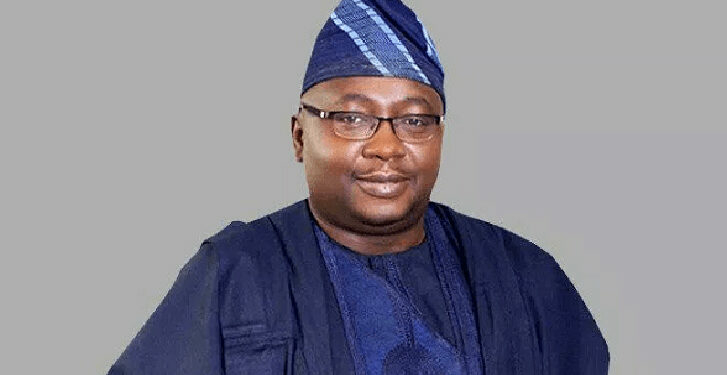- Power Minister Adebayo Adelabu claims new tariffs lowered Band A customers’ energy costs by 30-40%, despite higher electricity bills
- Adelabu dismisses claims of increased production costs, arguing the tariff reduces overall energy expenses for Band A manufacturers
Minister of Power Adebayo Adelabu stated that the complaints about the increase in electricity tariffs for Band A customers are mainly those who were not paying their electricity bills previously. Speaking at the 8th Africa Energy Marketplace forum in Abuja on Thursday, Adelabu mentioned that the new tariff has actually led to a 30 to 40 percent reduction in energy costs for Band A consumers.
Adelabu dismissed claims that the new tariff has increased production costs for manufacturers, which has increased the prices of goods and services. He emphasized that the tariff was not designed to burden Nigerians or exacerbate the current economic challenges but to alleviate some existing hardships.
He explained, “Those on Band A, if they should do their arithmetic properly, to compare what they have been spending on energy provision from grid supply and energy generators put together, before the review of tariff, they have achieved nothing less than 30 to 40 percent reduction in their total cost. That is the truth.”
Adelabu noted that although Band A customers might see higher bills, their overall energy expenses have decreased due to reduced spending on generator servicing, diesel, and petroleum. He argued that this results in lower production costs for manufacturers in Band A, contrary to claims that the new tariff would raise production costs and prices.
He added, “Manufacturers under Band A should have a lower energy cost by now, thereby reducing their cost of production—except those that have not been paying for electricity in the past. We can also come together to compare notes with practical examples. But how this new tariff regime will increase the cost of production is not valid because I am in that industry, too.”
Adelabu expressed his frustration that Nigeria, with its abundant sun, water, and gas resources, continues to struggle with electricity supply issues even after 60 years.
Earlier in the forum, Dr. Kevin K. Kariuki, Vice President of Power, Energy, Climate Change, and Green Growth Complex at the African Development Bank (AFDB), announced plans to support Nigeria’s power sector with $1 billion. This support will be channelled through a policy-based operation to aid ongoing power sector reforms initiated by the new Electricity Act. Kariuki also mentioned that the bank would finance policy recommendations to achieve the expected outcomes from the National Integrated Electricity Policy and Strategic Implementation Plan.










Discussion about this post